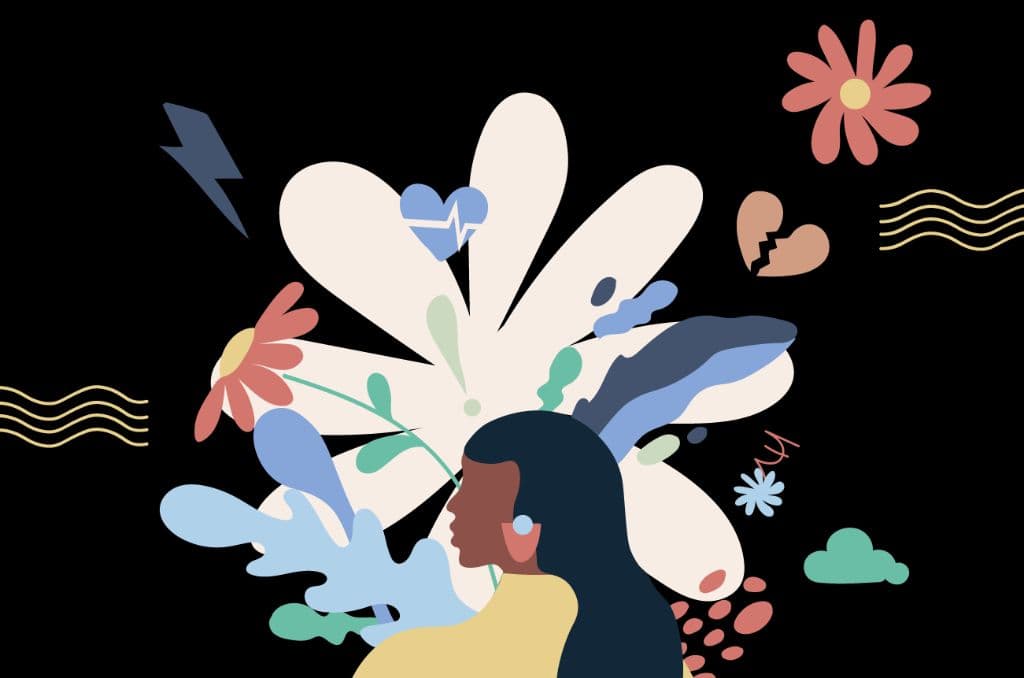We have all had our relationships with grief, some short-lived, some with long-lasting effects. Although people often struggle with pain in response to the loss of anything that is very important to them - a job, a friendship or other relationship, one's sense of safety, a home - grief usually refers to the loss of a loved one through death.
Grief affects everyone differently. Some might heal naturally with time, while for others, it can be exhausting and emotionally draining, making it hard to do simple things or even leave the house. While grieving death can be tough at any point in life, grieving the loss of a loved one while coping with the fear and anxiety related to the COVID-19 pandemic can be especially overwhelming.
Social distancing, ‘stay-at-home-orders’, and limits on the size of in-person gatherings have changed the way friends and family can gather and grieve. Due to the COVID-19 pandemic, one might be unable to be with a loved one when they die, or unable to mourn someone’s death in-person with friends and family.
The stages of grief
The emotional stages of grief are usually understood to be shock or disbelief, denial, bargaining, guilt, anger, depression, and acceptance/hope.
- Denial: When you first learn of a loss, it’s normal to think, “This can’t be happening.”
You may feel shocked or numb. This is a temporary way to deal with the rush of overwhelming emotion. It’s a defence mechanism. - Anger: As reality sets in, you are faced with the pain of your loss. You may feel frustrated and helpless. These feelings later turn into anger. You might direct it toward others or life in general or at yourself too. To be angry with a loved one who died and left you alone is natural, too.
- Thinking back: During this stage, you dwell on what you could’ve done to prevent the loss. Common thoughts are “If only…” and “What if…” You may also try to strike a deal with a higher power.
- Depression: Sadness sets in as you begin to understand the loss and its effect on your life. Signs of depression include crying, sleep issues, and a decreased appetite. You may feel overwhelmed, regretful, and lonely.
- Acceptance: In this final stage of grief, you accept the reality of your loss. It can’t be changed. Although you still feel sad, you are able to start moving forward with your life.
Every person goes through these phases in their own way. You may go back and forth between them, or skip one or more stages altogether. Reminders of your loss, like the anniversary of a death or a familiar song, can trigger the return of grief.
Effects of grief
Survivor’s Guilt: Survivor’s guilt can occur in relation to a traumatic event or a loss of life. When a person survives an event that others did not, it can lead to feelings of guilt.
Survivors may question why they escaped death while others lost their lives. They may also wonder whether there was something that they could have done to prevent the traumatic event or preserve life.
While it was once a diagnosis in its own right, mental health professionals now consider survivor’s guilt to be a significant symptom of post-traumatic stress disorder.
Chronic stress also is common during acute grief and can lead to a variety of physical and emotional issues, such as depression, trouble sleeping, feelings of anger and bitterness, anxiety, loss of appetite, and general aches and pains. People may even have suicidal thoughts.
Every person who experiences a death or other loss must complete a four-step grieving process:
- Accepting the loss.
- Working through and feel the physical and emotional pains of grief.
- Adjusting to living in a world without the person or item lost.
- Moving on with life. The grieving process is over only when a person completes the four steps.

Ways to cope with grief
- Accept your feelings. You may experience a wide range of emotions from sadness, anger or even exhaustion. All of these feelings are normal and it’s important to recognize when you are feeling this way. If you feel stuck or overwhelmed by these emotions, it may be helpful to talk with a licensed psychologist or another mental health professional who can help you cope with your feelings and find ways to get back on track.
- Talk about the death of your loved one with friends or colleagues in order to help you understand what happened and remember your friend or family member. Avoidance can lead to isolation and will disrupt the healing process with your support systems.
Some of the important ways to cope are:
- Acknowledge your pain.
- Accept that grief can trigger many different and unexpected emotions.
- Understand that your grieving process will be unique to you.
- Seek out face-to-face support from people who care about you.
- Support yourself emotionally by taking care of yourself physically.
- Be patient with the process.
- Acknowledge your feelings, even the ones you don't like.
- Get support.
- Try to maintain your normal lifestyle.
- Take care of yourself, to combat loneliness
- Talk, reach out about that person whom they have lost
- Strive for emotional independence
Join a support group. Speak with others who are also grieving. It can help you feel more connected.
In some cases, grief doesn’t get better.
A therapist can help you explore your emotions. They can also teach you coping skills and help you manage your grief. If you’re depressed, a doctor may be able to prescribe medicines to help you feel better.
When you’re in deep, emotional pain, it can be tempting to try to numb your feelings with drugs, alcohol, food, or even work. But be careful. These are temporary escapes that won’t make you heal faster or feel better in the long run. In fact, they can lead to addiction, depression, anxiety, or even an emotional breakdown.
Disclaimer: This information is educational and should not be construed as medical advice. Please consult your doctor before making any dietary changes or adding supplements.
ProactiveForHer is a digital clinic for women, offering accessible, personalised, and confidential healthcare solutions. We offer out-patient care, diagnostic services and programs for various health concerns of Indian women, across their lifetime - from puberty to pregnancy to menopause.

